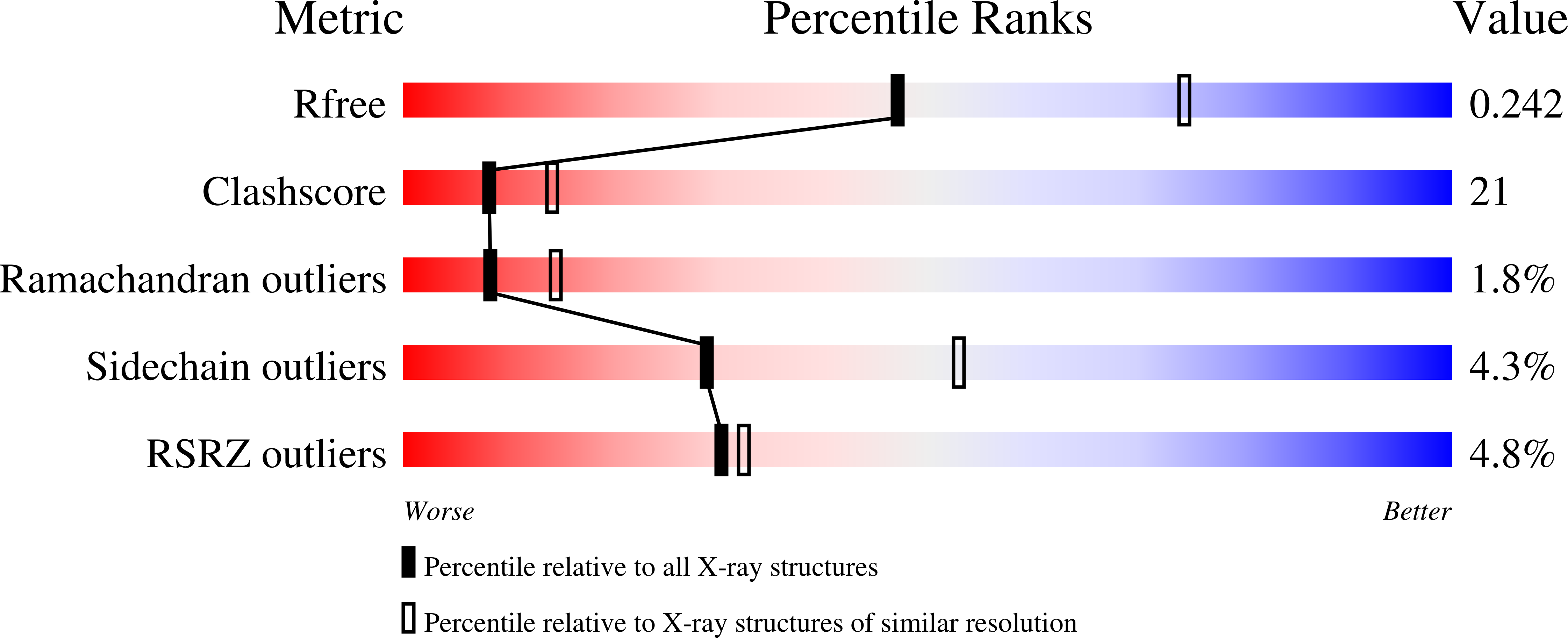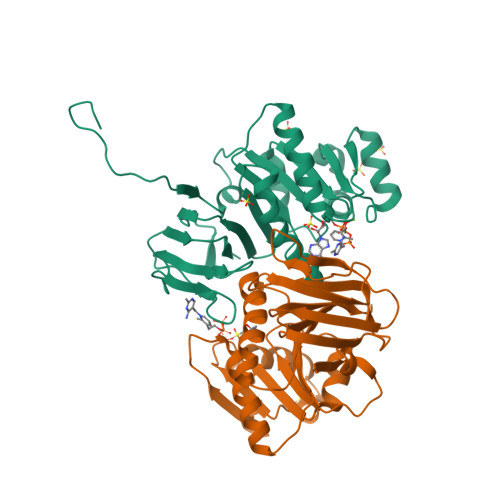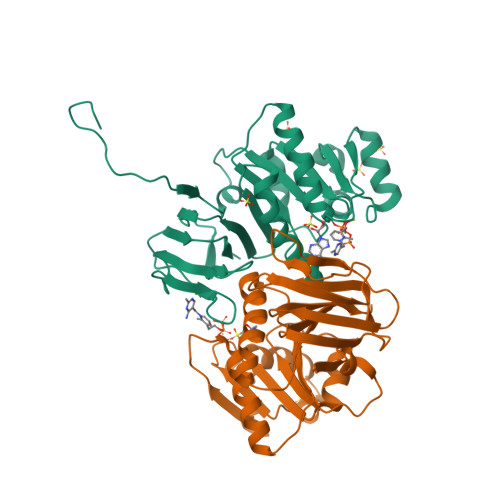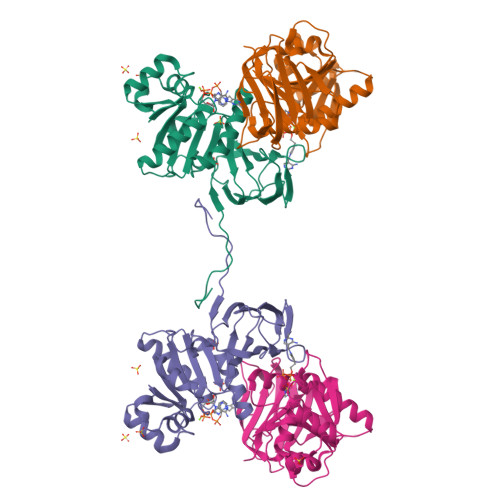Pyrithiamine as a substrate for thiamine pyrophosphokinase
Liu, J.Y., Timm, D.E., Hurley, T.D.(2006) J Biological Chem 281: 6601-6607
- PubMed: 16365036
- DOI: https://doi.org/10.1074/jbc.M510951200
- Primary Citation of Related Structures:
2F17 - PubMed Abstract:
Thiamine pyrophosphokinase transfers a pyrophosphate group from a nucleoside triphosphate, such as ATP, to the hydroxyl group of thiamine to produce thiamine pyrophosphate. Deficiencies in thiamine can result in the development of the neurological disorder Wernicke-Korsakoff Syndrome as well as the potentially fatal cardiovascular disease wet beriberi. Pyrithiamine is an inhibitor of thiamine metabolism that induces neurological symptoms similar to that of Wernicke-Korsakoff Syndrome in animals. However, the mechanism by which pyrithiamine interferes with cellular thiamine phosphoester homeostasis is not entirely clear. We used kinetic assays coupled with mass spectrometry of the reaction products and x-ray crystallography of an equilibrium reaction mixture of thiamine pyrophosphokinase, pyrithiamine, and Mg2+/ATP to elucidate the mechanism by which pyrithiamine inhibits the enzymatic production of thiamine pyrophosphate. Three lines of evidence support the ability of thiamine pyrophosphokinase to form pyrithiamine pyrophosphate. First, a coupled enzyme assay clearly demonstrated the ability of thiamine pyrophosphokinase to produce AMP when pyrithiamine was used as substrate. Second, an analysis of the reaction mixture by mass spectrometry directly identified pyrithiamine pyrophosphate in the reaction mixture. Last, the structure of thiamine pyrophosphokinase crystallized from an equilibrium substrate/product mixture shows clear electron density for pyrithiamine pyrophosphate bound in the enzyme active site. This structure also provides the first clear picture of the binding pocket for the nucleoside triphosphate and permits the first detailed understanding of the catalytic requirements for catalysis in this enzyme.
Organizational Affiliation:
Department of Biochemistry and Molecular Biology, Indiana University School of Medicine, Indianapolis, Indiana 46202-5122, USA.
























